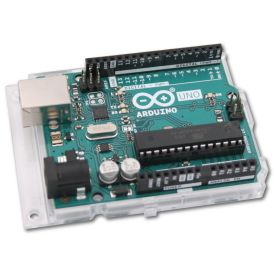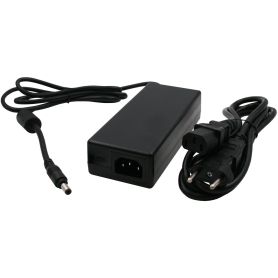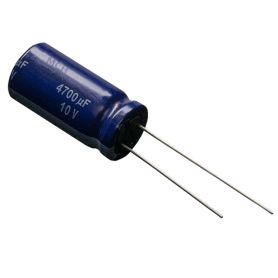NeoPixel RGB Led strip - 30 LEDs per 1m (Black STRIP)
NeoPixel Digital RGB LED ribbon/strip,
- 30 LEDs per 1m,
- Black pcb,
- Waterproof (WeatherProof)
Payments are secured by LyraCollect, a French payment collection company.
It is possible to delivered to your home, to a pick-up point or picked up by appointment at MCHobby
We prepare, pack and ship your orders with great respect and care.
Neopixels on a black strip with 30 pixels per meter
These NeoPixel LED strips/ribbon have, each meter, 30 LEDs digitally-addressable for a price quite reasonable. The ribbon is 12.5mm wide (or 10mm if you remove it from "its protection"). This is a ribbon with a flexible PCB, it is identical to the models 30 LEDs/meter but with more LEDs and a black PCB.
There are some points to be aware of:
- These LEDs consume about 9.5 Watts (max) per meter... (ie ~ 2 Amps at 5V). The maximum consumption can be evaluated considering that all the LEDs are lit at 100%, white color. Usually, the current really used in "colorized" designs consume about 1/3 to 1/2 of the maximum current. The use of a 5V 2A power supply or 5V 10A is a key element!
- The RGB LED controller is integrated into the LED case. This makes it possible to obtain a ribbon/strip very fine and easy to produce and easier to implement in your projects. The LED controller is intelligently designed because it uses one pin as input (data) and another as output data.
The protocol used requires very high accuracy in time management and can only be controlled by micro-controllers that can reach an accuracy of 100ns (over time and reliably).
AdaFruit offers code examples using an Arduino Uno/Mega micro-controller at 8MHz and 16MHz but it doesn't work with a Raspberry-Pi, Basic Stamp, NETduino or any other interpreter-based machine or virtual machine whose speed is less than 8MHz. For such processors look for LED strips of 32 LED/meters based on an SPI interface (or equivalent). These models work well with Pi, NETduino and other processors. - The way of managing the pixels requires the use of a buffer memory to memorize all the elements of the ribbon/strip. Often, on Arduino UNO there are only 500 free bytes left once all the extras added to the project. 500 bytes is enough to control 150 pixels. If you want to drive a full strip/ribbon using complementary libraries, you may need a Mega (see this tutorial on comparing SRAM memory).
This strip contains 30 RGB LEDs per meter and each LED can be controlled individually! Yes, you read it right, it's a digitally-addressable LED strip. You can set the red, green, blue color of each LED with a PWM signal with 8-bit precision (so a 24-bit color per pixel). The LEDs are controlled using shift registers that are chained along the ribbon which shortens or lengthens the ribbon. Only one digital output is required to send all the necessary data on the ribbon. The PWM control is integrated to the integrated circuit of the RGB Pixel, once the selected (programmed) color it is no longer necessary to communicate with the strip/ribbon because the PWM signal continues "all alone"... and this is true for each of the pixels.
The ribbon is made using a board (PCB) of flexible material placed in a waterproof coating. You can easily split the ribbon using a cutter and cut marks are placed every 3.4cm (1 mark per LED). Then weld your wires to the copper pads and you are ready to start. You can, of course, connect ribbons together to make a longer one, just pay attention to the current needed to power everything! We have 5V/2A power supplies capable of powering 1 meter and 5V/10A power supplies capable of illuminating up to 10 meters (depending on usage).
It is important to use a DC 5V power supply to power the ribbon because it doesn't support a voltage higher than 6V (beyond this, the ribbon is completely destroyed).
Exist in 5 meters with a 2-pin JST SM connector at each end with separate power/ground connection wires. This ribbon is sold by the meter! If you buy 5 meter at a time, you will have a complete coil with two connectors. If you buy less than 5m, you get a simple ribbon, but this will be a coil section (severed at the marking point) and you could may not have a connector. In this case, you will need to weld wires on the connection pads.
To connect these ribbons more easily, you can connect these ribbons using a few JST SM plugs and JST SM case (available on request). If you want to connect to the input of a 5m ribbon (to connect it to the power supply and the micro-controller), you will need a case (not the plug) JST SM. If you want to connect to the output of the ribbon (example: to add another ribbon), you will need a plug. If you have less than 5 meters of ribbon, you will probably need a plug and a case to make the connections easier. You will probably need a "Power adapter with terminal block" (DC 2.1mm jack).
Support
- You can download the Arduino library made available by AdaFruit Industries (ready to use, works with Arduino UNO/Duemilanova and Mega/ADK.
Tutorial
- The NeoPixel user guide (MCHobby, French)
- Power LED projects on battery (MCHobby, French)
- AdaFruit tutorial on NeoPixel (AdaFruit, English)






![[T] - Connecteur JST SM (mâle+femelle) 2 poles + cable Connecteur JST SM (mâle) 2 poles + cable](https://shop.mchobby.be/2961-home_default/connecteur-jst-sm-male-2-poles-cable.jpg)
![[T] - Connecteur JST SM (femelle) 2 poles + cable Connecteur JST SM (mâle) 2 poles + cable](https://shop.mchobby.be/772-home_default/connecteur-jst-sm-male-2-poles-cable.jpg)

![[T] - Trinket Pro 5V - Atmega328P, 16 Mhz Trinket Pro - 5V 16 Mhz](https://shop.mchobby.be/1441-home_default/trinket-pro-5v-16-mhz.jpg)